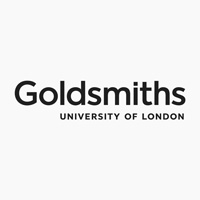fees waived
Popular Music, BMus (Hons)
Goldsmiths, University of London, United Kingdom
Ranking in UK
Arts and Humanities
Arts and Humanities
Music
Costs
food & rent S$24.8K / year
Entry requirements
Scholarships
Limited quantity
Information
Code
Intakes
Website (External)
Programmes
Information
Duration
2028
The BMus Popular Music programme at Goldsmiths offers a pioneering approach to popular music, emphasising exploration and experimentation in creative practice. Students develop diverse skills through individual and collaborative activities, including musicianship, songwriting, production, recording, composition for film, and performance. With strong industry connections, the programme features lectures from professional musicians and producers, guest speakers like Nigel Godrich and Mica Levi, and opportunities for performances at events such as PureGold festival. Located in London, it provides access to top-tier teachers, venues, and an independent record label for international promotion. Note that applications are accepted only for first-year entry, with no deferred options.In the first year, compulsory modules cover creative music studies, performance, and music technology. The second year includes core modules in performance and songwriting, plus options in ensemble skills and global musics. The final year features a major project and choices in creative careers or audiovisual composition. Assessment varies by module, incorporating coursework, exams, group work, recitals, and performances.
Year 1 (credit level 4) In your first year you study a range of areas including creative and practical music studies, textual and contextual analysis of popular music, and an introduction to music technology. All modules are compulsory at this level as we feel it is essential that all our students develop the necessary key skills and knowledge base before further specialisation. The modules are: Songform Popular Music Performance Artistic Practices Contemporary Music Industries Popular Music Cultures Year 2 (credit level 5) In your second year, you'll study the following compulsory modules: Performance: New Contexts Songwriting You'll then choose 2 optional modules (30 credits) from the following list: Ensemble Performance Studio and Production Skills Pitching Creative Businesses The Goldsmiths Elective The Goldsmiths Project You'll also choose a further 2 modules (60 credits) from the following list: Creative Jazz Studies Music and the Moving Image Global Musics Sonic Art: Contexts and Practices Year 3 (credit level 6) In your final year, you will complete the following compulsory module: Music: Major Project You'll then choose 1 or 2 optional modules from the following list: Creative Performance Work Placement You as Your Future: Developing Creative Careers Psychological Approaches to Music You'll then choose a further 2 options from the following list: Audiovisual Composition and its Contexts Sculpting Electronic Sound Capturing Music and Practice Music Education, Outreach and Inclusion Please note that due to staff research commitments not all of these modules may be available every year.
A local representative of Goldsmiths, University of London in Singapore is available online to assist you with enquiries about this course.

